Our priority areas
Strategic priorities
Northern Queensland Primary Health Network (NQPHN) responds to the health needs of its region as outlined in NQPHN’s Health Needs Assessment while being guided by the National PHN Performance and Quality Framework for targeted work.
Five priority areas have been identified to strengthen the primary health care sector in northern Queensland and to achieve the objectives set out in NQPHN’s Strategic Plan 2021-26. A sixth priority area has been added that is committed to our internal foundational objectives.
These priority areas include:
- Population Health
- Mental Health and Alcohol and Other Drugs
- GPs and other Primary Care Professionals
- First Nations Health
- System Integration
- Foundational.
While not excluding other health needs, targeted focus on these priorities will make the greatest impact on helping northern Queenslanders to live happier, healthier, longer lives.
NQPHN's Population Health priority objectives include health promotion, early intervention, and primary care treatment focused on stages across the life span. Longer term, NQPHN’s commissioned programs will maximise health and wellbeing outcomes for people across priority life stages
By addressing the needs of North Queensland communities, and focusing on prevention and early intervention activities, there will be fewer preventable hospitalisations in the NQPHN region for people with chronic and vaccine preventable diseases.
Combined, these activities will contribute to improved health outcomes for all population groups in the NQPHN region.
A selection of our Population Health projects are highlighted below.
Population Health
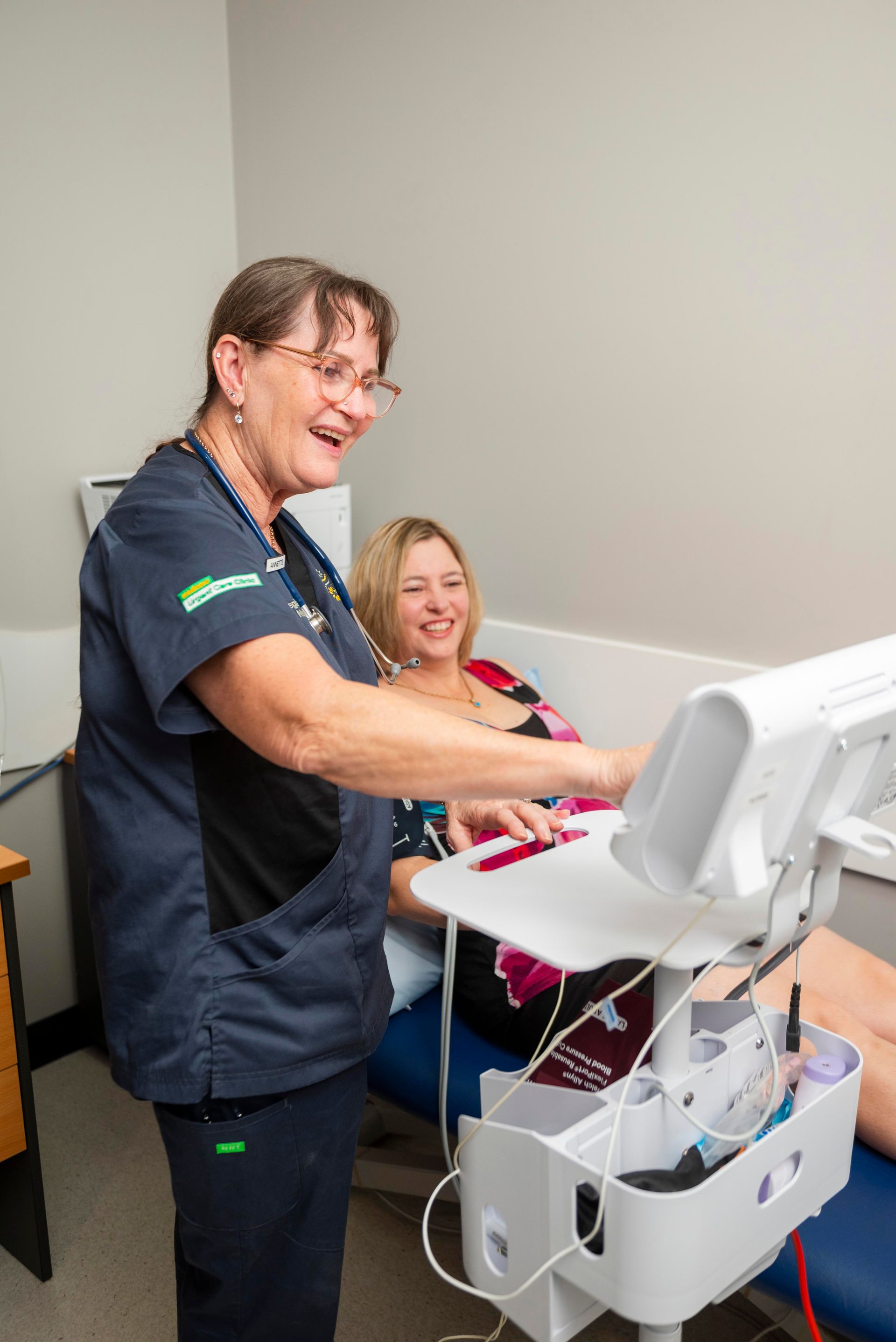
On 19 December 2023, NQPHN launched Medicare Urgent Care Clinics (MUCCs) in both Townsville and Cairns South. The MUCCs provide residents with access to urgent care when they need medical attention for an illness or injury that can be managed without a trip to the emergency department but cannot wait for a regular appointment with their usual general practitioner.
The launch of these clinics followed a three-phased commissioning approach that included working in collaboration with Townsville Hospital and Health Service (HHS) and Cairns and Hinterland HHS, Queensland Ambulance Service, and local service providers to localise and plan the MUCCs to complement existing services.
NQPHN collaborated with advisory groups comprised of a range of stakeholders throughout this project. This collaborative effort resulted in diagnostic imaging (ultrasounds and X-ray services) being introduced onsite at the Cairns South MUCC, with similar services planned to be implemented during the 2024-25 financial year at the Townsville MUCC.
NQPHN developed a local community communication and marketing strategy to promote the MUCCs that was deployed in June 2024 and will continue into the 2024-25 financial year. The strategy includes bus signage, roadside billboards, digital shopping centre ads, posters in emergency department waiting rooms, flyer letterbox drop, stakeholder resource information pack, Tonic TV in GP waiting rooms, and social media campaign.
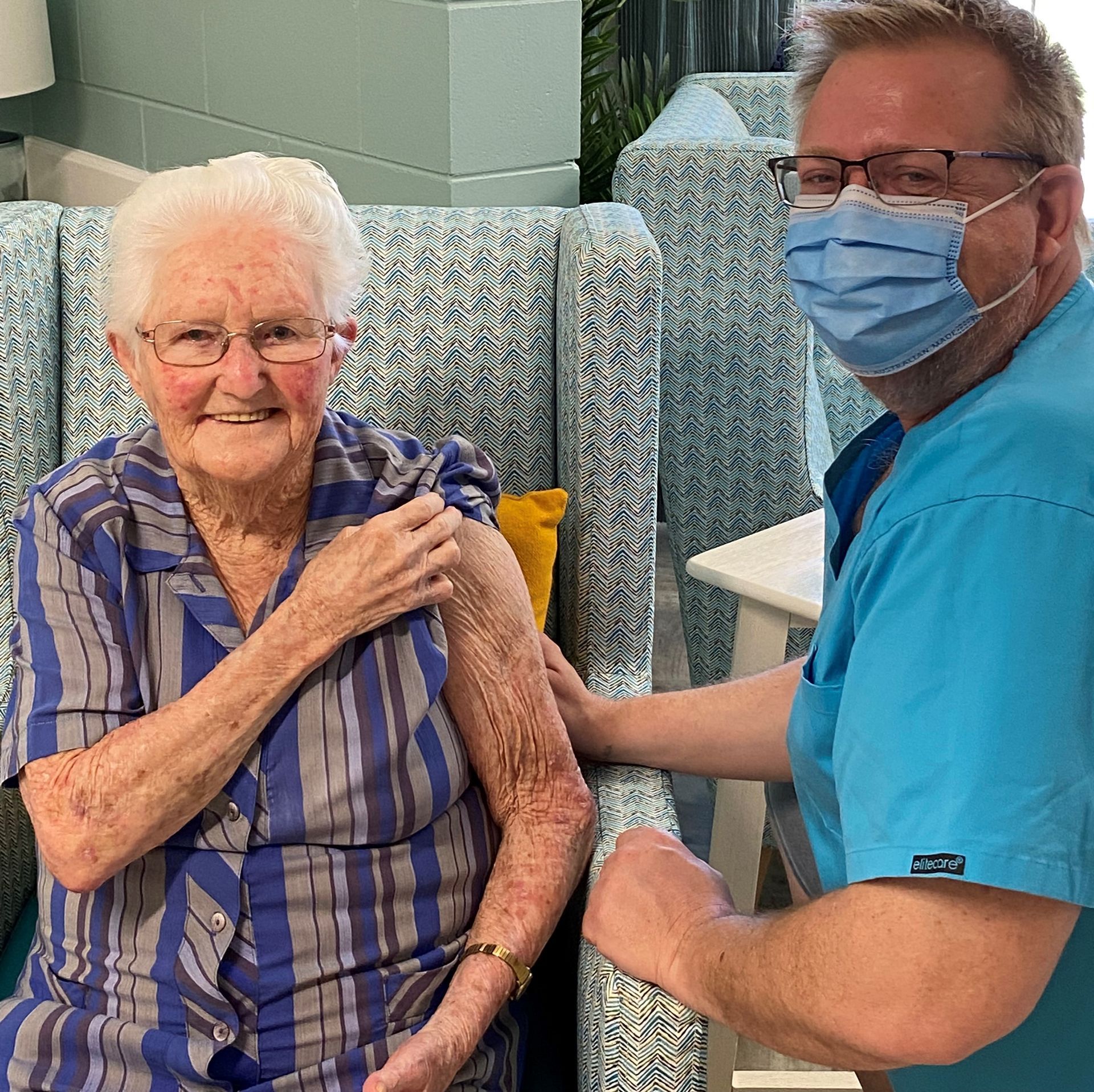
Enhancing community resilience and access to care
In line with North Queensland Primary Health Network's (NQPHN) commitment to improving population health outcomes, several key initiatives in 2023-2024 have significantly strengthened disaster preparedness and vaccination efforts across the region.
Disaster Planning Workshops
During November and December 2023, NQPHN conducted Disaster Planning Workshops in Cairns, Townsville, and Mackay, engaging over 40 per cent of Residential Aged Care Homes (RACHs) across its region, and 53 general practices.
The workshops focused on emergency preparedness for natural disasters and pandemics, including COVID-19. These sessions, which were held just prior to the huge impact of Tropical Cyclone Jasper in Far North Queensland, empowered healthcare providers to develop robust disaster management plans, enhancing resilience for vulnerable populations.
First Nations vaccination campaign
A targeted vaccination campaign in Yarrabah, an Indigenous community in Far North Queensland, increased COVID-19 vaccination coverage in partnership with Gurriny Yealamucka Health Services and the Oceana Vaccination team.
This initiative, which administered 125 Pfizer doses between May and November 2023, was part of a broader effort to support First Nations health through Young Persons Health and Wellbeing Checks, aimed at individuals aged 15-24.
Aged care vaccination through pharmacies
The NQPHN Pharmacy Residential Aged Care Home (RACH) Vaccination Program provided COVID-19 vaccines to elderly residents in 16 aged care facilities across North Queensland, resulting in the administration of 788 doses. The program, conducted in collaboration with local pharmacies, expanded vaccine access to some of the region’s most vulnerable individuals.
These initiatives, which focused on disaster preparedness and vaccination, reflect NQPHN’s commitment to coordination, awareness and preparedness to enhance population health and help ensure proactive, collaborative, and accessible healthcare across North Queensland.
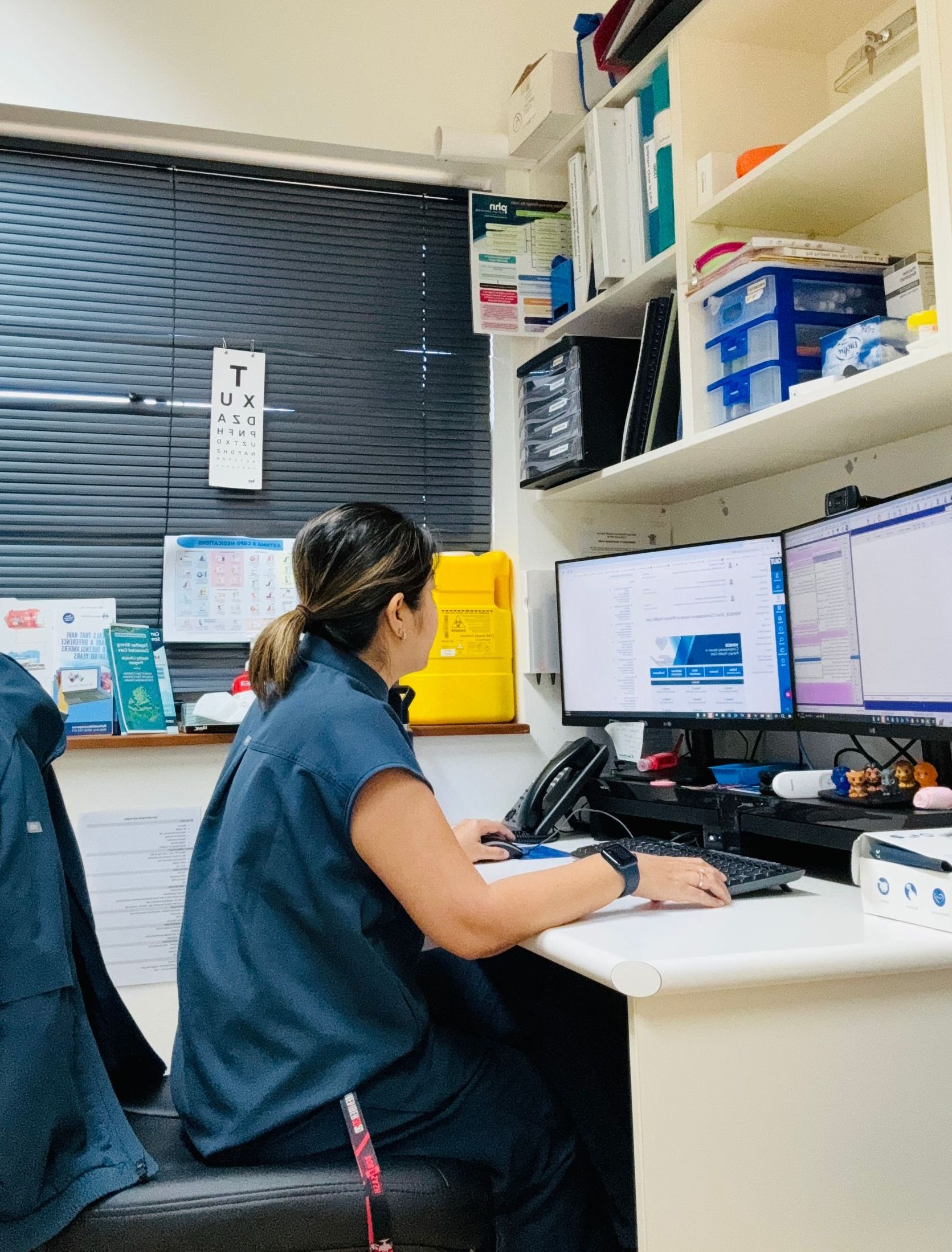
Chronic conditions pilot program
Nine general practices have received grants to help enhance chronic condition management and deliver better team-based care. Providers are based in Townsville and Mackay, as well as the smaller rural communities of Richmond, Collinsville, Middlemount, Ravenshoe, Cardwell, Tully and Mareeba.
The pilot program seeks to support general practice to deliver team based primary care via grant funding that can pay for services delivered by nursing or allied health working closely with a GP, targeting people with a diagnosed chronic condition. The packages are an initiative under NQPHN’s five-year Chronic Conditions Strategy, developed in 2022-2023 in consultation with stakeholders.
NQPHN's Mental Health and Alcohol and Other Drugs (AOD) priority objectives include to progress towards equitable access to a networked system of mental health and alcohol and other drugs services.
During the 2022-23 financial year, NQPHN increased access to mental health services by funding programs that meet the needs of North Queenslanders. We also continued a codesign process to implement a new model of mental health stepped care services that will increase access to high quality, safe, and timely mental health care, including to areas and groups experiencing vulnerability. You can read more about this project below.
NQPHN is committed to enhancing and establishing a range of evidence-based and culturally appropriate mental health and AOD support services which are accessible to residents across North Queensland.
A few of our Mental Health and AOD projects are highlighted below.
Mental Health and Alcohol and Other Drugs
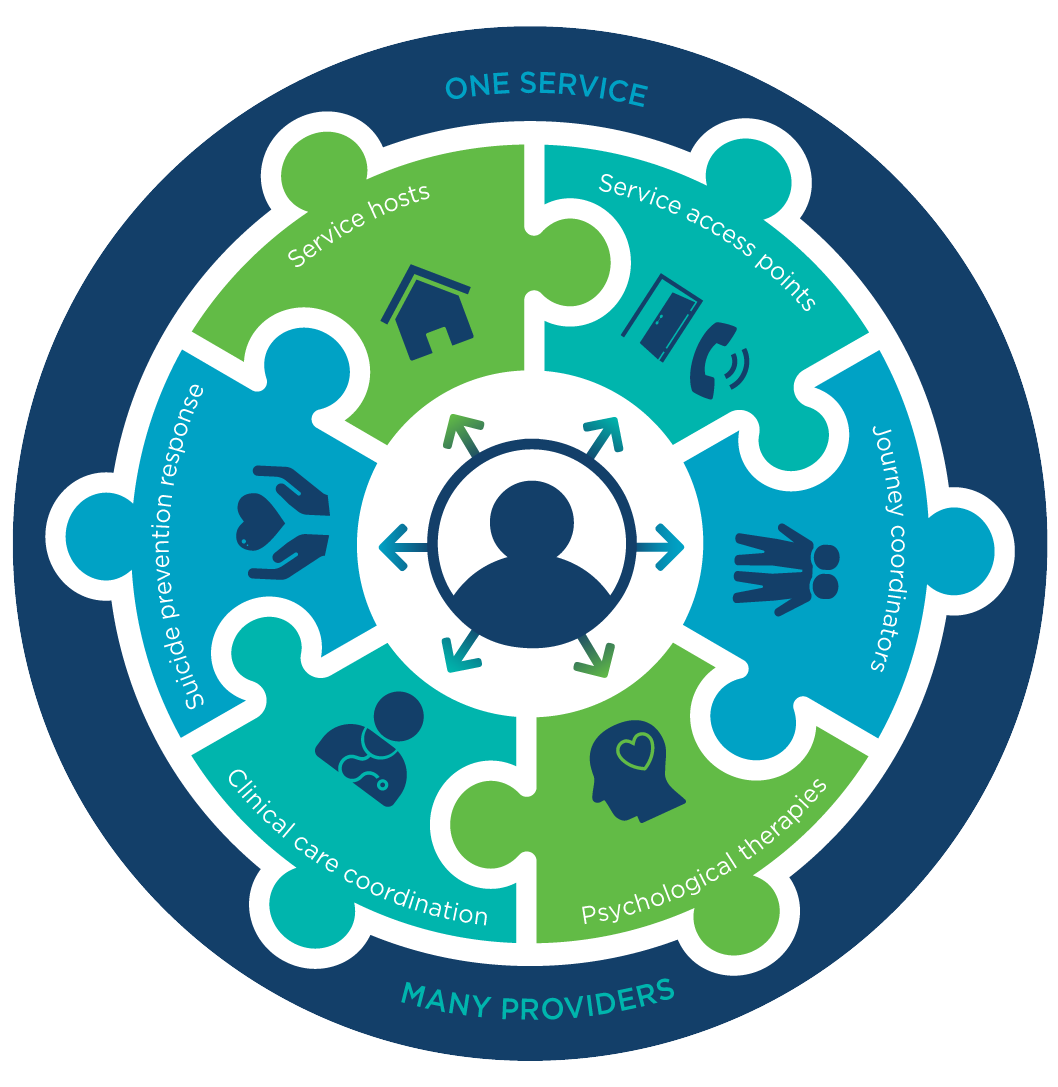
New model of mental health stepped care
Throughout 2023, NQPHN led a comprehensive codesign process to design a future primary mental health care service system. More than 570 stakeholders – people with a lived experience of mental health challenges, a diverse range of service providers and primary care clinicians and other interested stakeholders – engaged through 21 group workshops, three GP focus groups and 40 individual meetings.
The redesign of the mental health stepped care model was an opportunity to implement a service response that better meets the needs of the community. The new service model includes eight service offerings, underpinned by five key principles, whereby multiple providers work together to ensure easy access to services and coordinated support.
Procurement for the new model has been completed and took effect on 1 July 2024. A transition period occurred between April and August 2024, with NQPHN working with existing and new providers to ensure a smooth transition and continuity of care.
A formal launch of the new model will occur in late 2024, following full implementation of the new model and the range of new services within the model and development of new branding and service naming.

Community Wellness and Suicide Prevention Grants
NQPHN released a grants round in April for community-based organisations with a project or initiative they want to develop and/or deliver to support community wellness and suicide prevention.
Through this grants round, NQPHN contracted 15 organisations .
The grants round was informed by a broad community consultation process throughout 2023 and 2024, with more than 250 participants, that highlighted the value of grassroots initiatives and the need for additional funding and support. This led to NQPHN receiving over 45 grant applications.
We are looking forward to supporting these grassroots initiatives to provide innovative support to their communities during the next financial year.
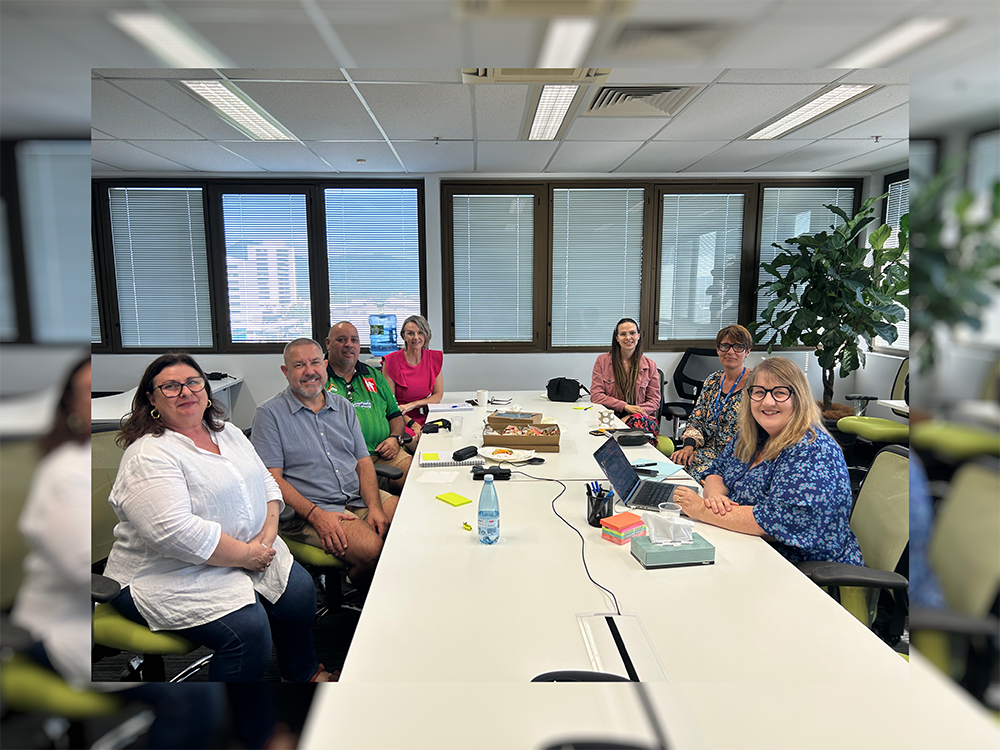
Lived Experience Governance and Advisory approach
Throughout 2023-24, NQPHN has strengthened the role of Lived and Living Experience in Mental health, AOD, and Suicide prevention service design, procurement and broad commissioning practices, in line with Commonwealth requirements. This has included:
- the stepped mental health care redesign project was supported through the establishment of a Project Advisory Group, which included lived experience representation
- all procurement processes throughout the year have included paid lived experience panel members relevant to the specific procurement
- a Lived Experience Advisory Group was established for the Cairns Medicare Mental Health Centre, informing codesign and establishment considerations.
- a Lived experience advisory group has been established for the Joint Regional Wellbeing Plan development currently underway.
The work of NQPHN focuses on designing services and systems that make a positive impact on the people they are designed for. By incorporating the perspectives of people with lived experiences throughout design and decision making processes, we ensure that the services are, and continue to be, accessible and supportive within our communities.
Specifically within the tender assessment process, the addition of a lived experience perspective has strengthened the assessment, enabling decisions based on a clear understanding of how the service will be experienced by people using it.
The GPs and other Primary Care Professionals priority area assists the North Queensland primary care workforce to build the capacity and capability to deliver high quality, integrated care.
Overall, our Primary Care Engagement, Workforce Development, Disaster and Preparedness, and Integration and Partnership teams are dedicated to supporting primary care providers in delivering high-quality, sustainable, and person-centred care by:
- delivering capacity and capability-building activities to ensure change and reform readiness, and the adoption of reform policy in primary care
- aligning digital health, data analytics, and system intelligence to work closely with GPs, primary care professionals, and the broader health service sector
- driving the facilitation, integration, and innovation in primary healthcare delivery models using evidence-based and person-centred approaches, with our team committed to working with our strategic partners to broker innovative, place-based models of care to keep people well and out of hospital
- assist primary care providers to maintain highly effective and sustainable practices
- equipping the primary care workforce to effectively address the demands in preparing for and responding to disasters such as floods, cyclones, COVID-19, or any other business interruption.
A selection of our GP and other Primary Care Professionals projects are highlighted below.
GPs and other Primary Care Professionals
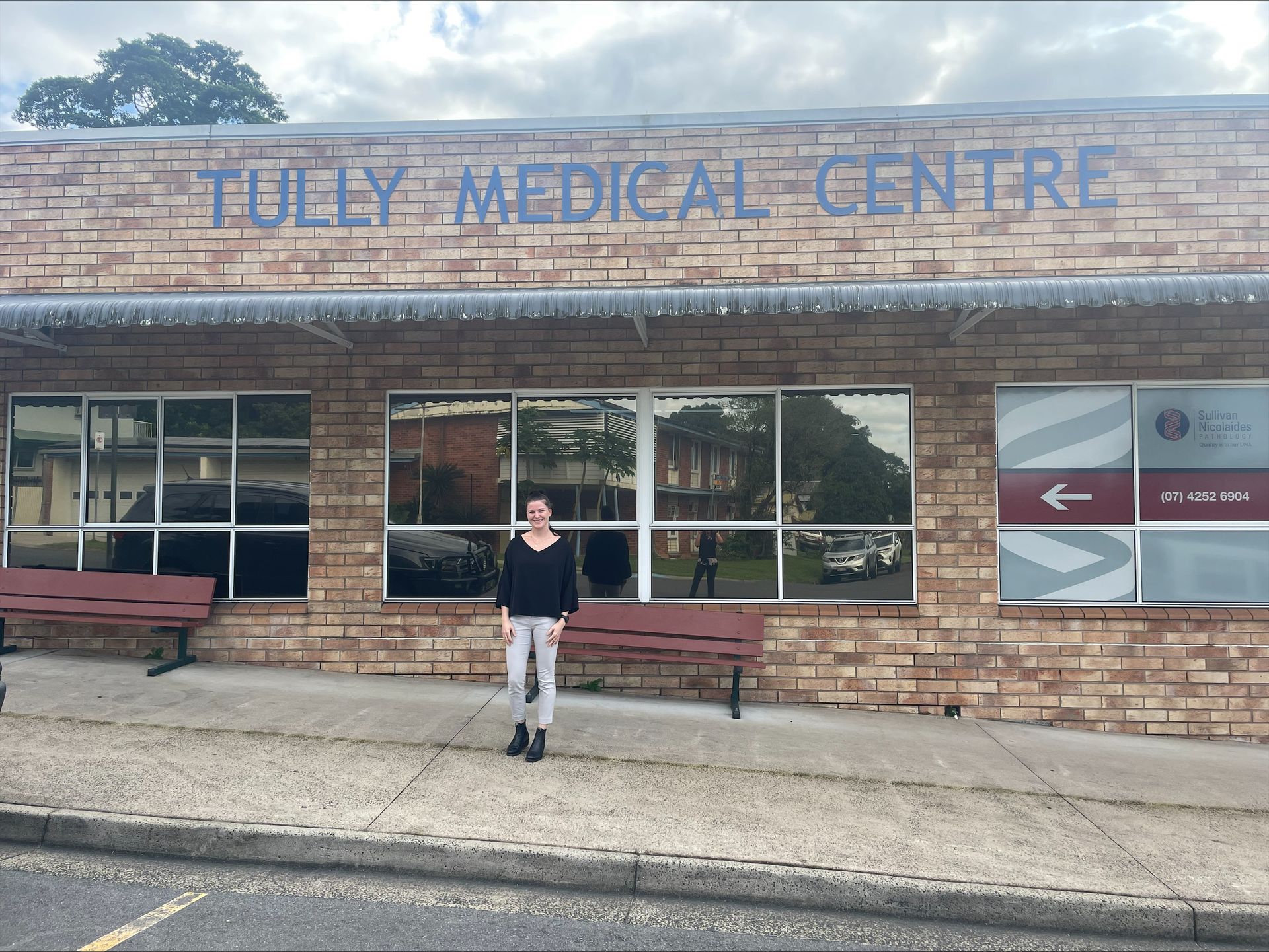
Rural Workforce Enhancement project
The Rural Workforce Enhancement Program is a joint initiative of Health Workforce Queensland and NQPHN and supports the recruitment and retention of primary care professionals relocating to the North Queensland region, with focus on identified areas of highest need.
In 2023-24, the program recruited and placed 27 clinicians in North Queensland: 18 GPs, 4 Physiotherapists, 1 Occupational Therapist, 1 Podiatrist, 1 Registered Nurse, 1 Social Worker and 1 Speech Pathologist.
All clinicians were recruited to general practices, ACCHOs, or private allied health practices. Importantly, several placements were to communities experiencing critical health workforce shortages, such as Tully, Clermont, and Bowen.
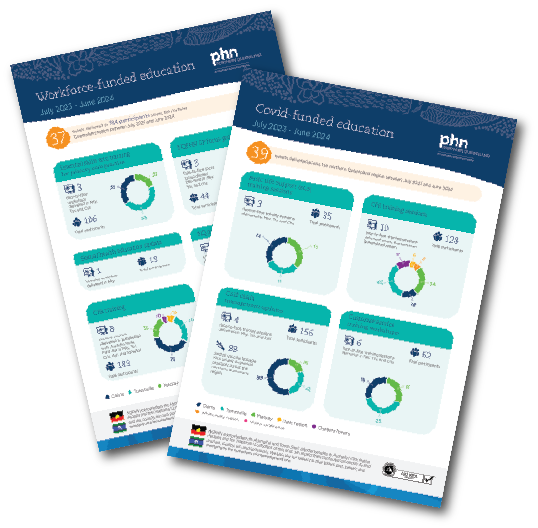
Continuous Professional Development (CPD)
Northern Queensland Primary Health Network (NQPHN) provides access to a range of CPD educational events for health professionals across the northern Queensland region.
The CPD program is fundamental in building primary care workforce capacity and capability and providing primary care professionals with the skills to competently deliver better health outcomes for patients and provide access to trained and competent health professionals.
The CPD program supports practices in maintaining their practice accreditation standards by delivering relevant training and education – i.e. CPR training, Cultural Awareness training, and Disaster Planning and Preparedness training. Additionally, the program aims to provide GPs and other healthcare professionals with access to high-quality educational activities and provide support to them to maintain and improve their professional knowledge and skills.
NQPHN delivered a total of 76 events across the northern Queensland region between July 2023 and June 2024 with a total of 1,614 participants attending these events.

Stengthening Medicare grants
The Strengthening Medicare grants supported improvements in general practice and Aboriginal Community Controlled Health Organisations (ACCHOs) through a one-off grant of up to $50,000, based on practice size. The grant funding could be used to invest in innovation, training, equipment, and minor capital works in one or more of the three investment streams:
- Enhance digital health capability
- Upgrade infection prevention and control arrangements and/or
- Maintain and/or achieve accreditation.
Every practice that was offered a grant took up this funding.
NQPHN remains committed to First Nations health, with a clear objective to progress towards improved health equity and health outcomes for First Nations People. Our collaborative efforts with partners across the sector aim to ensure First Nations peoples gain increased access to coordinated, high-quality and culturally safe care.
As part of our commitment to First Nations health, we have continued to support workforce capacity and capability within the community-controlled sector, while also assisting ACCHOs to deliver maternal and child health services, and contribute to building an appropriately skilled First Nations workforce to deliver these essential services.
A selection of our First Nations Health projects are highlighted below.
First Nations Health
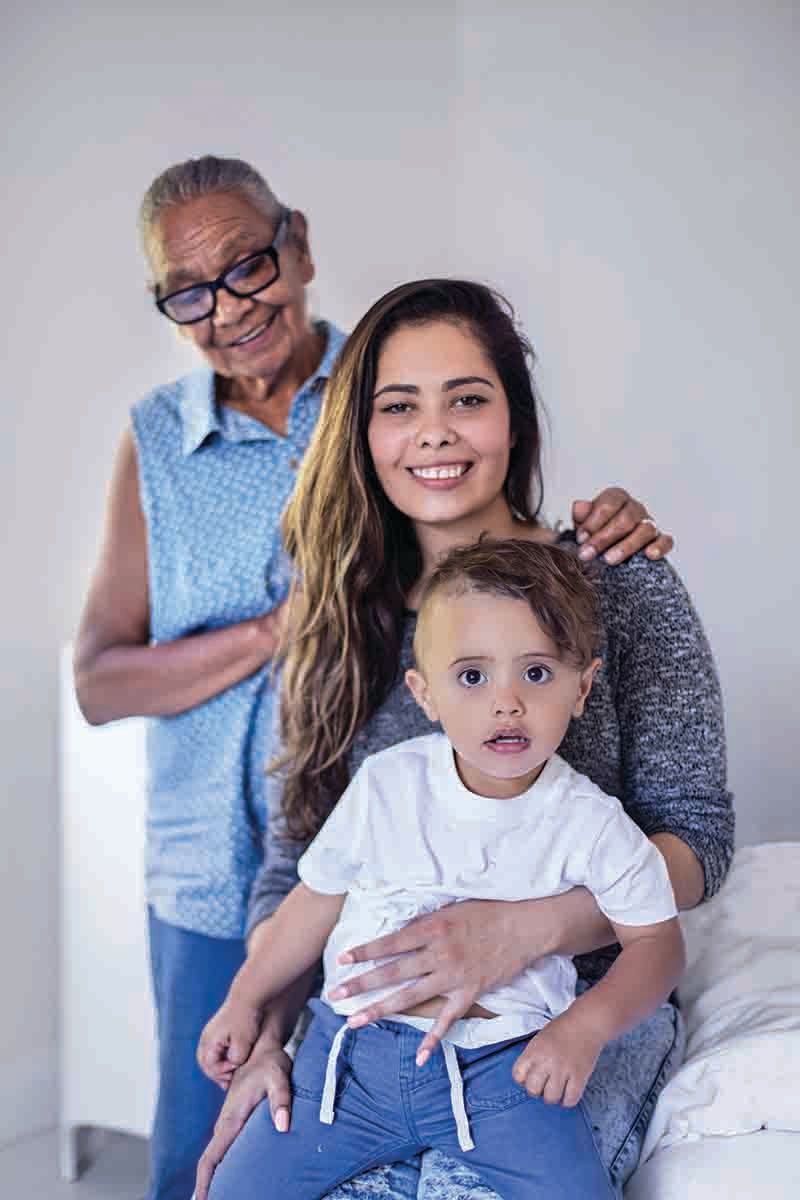
Aboriginal and Torres Strait Islander health worker capacity building
During 2023-24, NQPHN delivered a professional development program specifically for Aboriginal and Torres Strait Islander health workers and health practitioners within the NQPHN region.
The program focused on improving cultural safety and access to health care and treatment services, and in reducing barriers to service and treatments.
This workforce is unique among health professionals in that they not only have clinical skills but can also respond to the social and cultural needs and contexts of Aboriginal and Torres Strait Islander patients, families, and communities.
This program includes professional development, education, and training across this disperse workforce and across varying unique and remote to very remote locations.
Ongoing development of Aboriginal and Torres Strait Islander Health workforce and practitioners is critical in reducing the burden of health conditions and potentially preventable hospital admissions for all Health Service facilities.

Maternal and child health social and emotional wellbeing program
The maternal and child health social and emotional wellbeing program aims to improve health outcomes for First Nations families and communities by providing care coordination and improving access to primary health care, including culturally appropriate mainstream services, while keeping families connected to their community.
This program delivers a holistic model of social emotional wellbeing support tailored for First Nations women, children, and families during the first 1000 days of life, from preconception through to a child's second birthday. The program delivers culturally appropriate information and education to families to build social and emotional wellbeing skills, resilience, and protective factors.
The program includes prenatal and antenatal care, nutrition education, breastfeeding support, immunisation campaigns, social and emotional wellbeing supports, and pathways for mental health supports.
This funding was a closed tender specifically for ACCHOs in the NQPHN region, with six ACCHOs receiveing funding. Providers include Mulungu, Gurriny Yealamucka Health Services, Townsville Aboriginal and Islander Health Service (TAIHS), Mookai Rosie, Northern Peninsula Area Family and Community Services (NPAFACS), and Palm Island Community Company (PICC).
Codesign workshops were facilitated in 2023 for phase one of the program, bringing together a cross-section of staff from six ACCHOs, Hospital and Health Services (HHSs), the Department of Education and Early Childhood, Tropical Health, Queensland Aboriginal and Islander Health Council (QAIHC), and digital health organisations from across the region to work collaboratively on developing this new model of care.
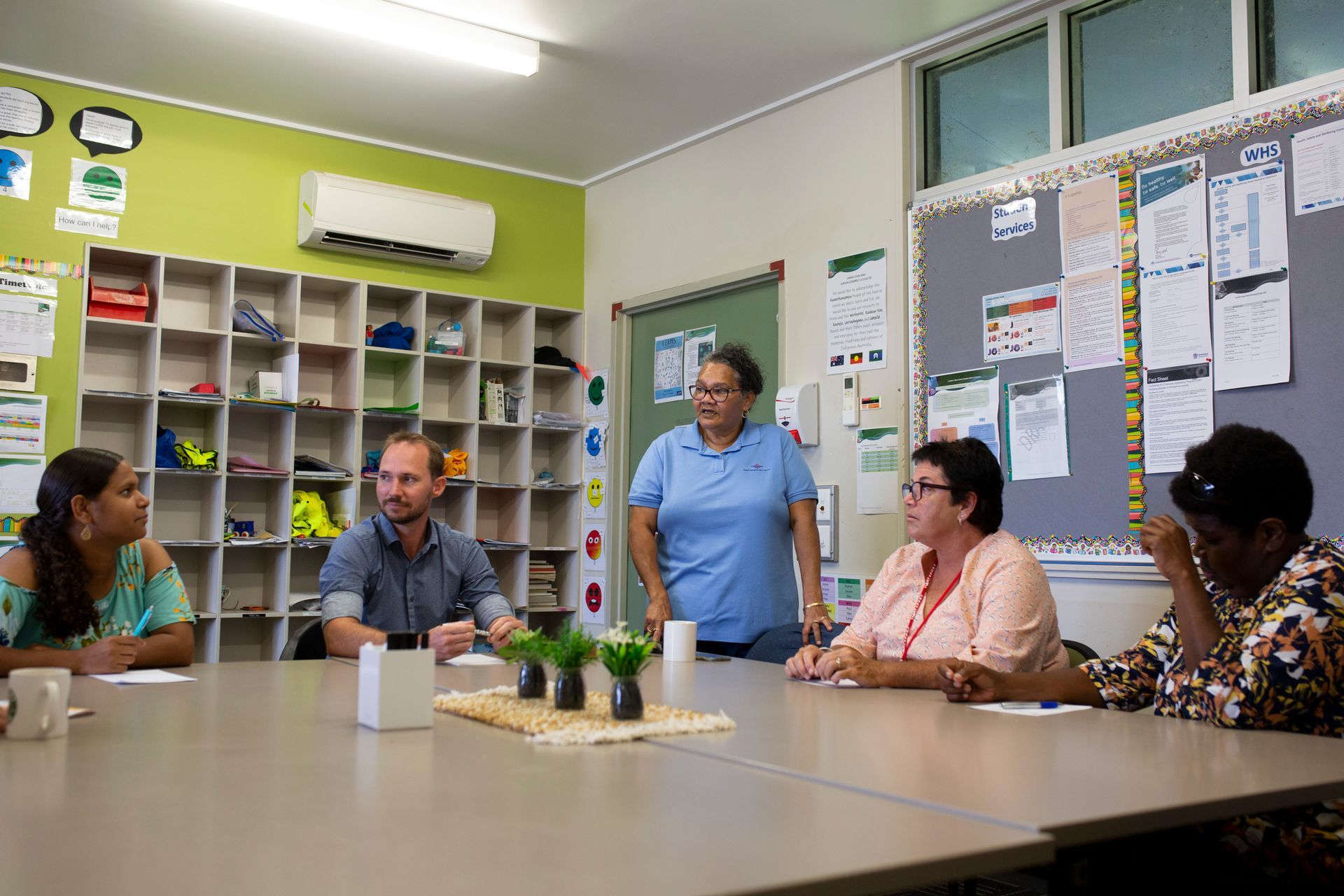
Place based mental health services
NQPHN works in partnership with community and the Aboriginal health sector to commission services to deliver culturally appropriate, evidence based mental health services to First Nations people across North Queensland, to deliver services that best meet the needs of these communities.
NQPHN commissions several providers to deliver place based mental health services for First Nations communities across North Queensland.
Supporting the delivery of mental health and drug and alcohol services for Aboriginal and Torres Strait Islander peoples is a priority for NQPHN, and we also commission Aboriginal Community Controlled Health Organisations (ACCHOs) to provide these services in our catchment.
We recognise that ACCHOs are best placed to provide a holistic approach in delivering mental health care. ACCHOs do this by providing clinical care, psychosocial, and social and emotional wellbeing support, while also addressing the social determinants of health and health inequity experienced by Indigenous communities.
Each ACCHO sets its own strategic direction, objectives, and priorities. Priorities are holistic and are broader than primary care services alone. The models of care they deliver are designed around place and are unique to the communities in which they service.
NQPHN's System Integration priority area forms a pivotal element in our commitment to advancing primary health care.
Our objective aims to help people to receive the right care, in the right place, at the right time in an integrated and digitally enabled health system.
We work with partners to jointly plan, co-commission and deliver innovative models of service delivery to address key health priority areas.
It involves integrating and streamlining information, resources and processes to ensure efficient and effective healthcare delivery.
Our key focus areas include data integration, care coordination, resource optimisation, quality and safety, patient engagement, and population health management.
A selection of our System Integration projects are highlighted below.
System Integration
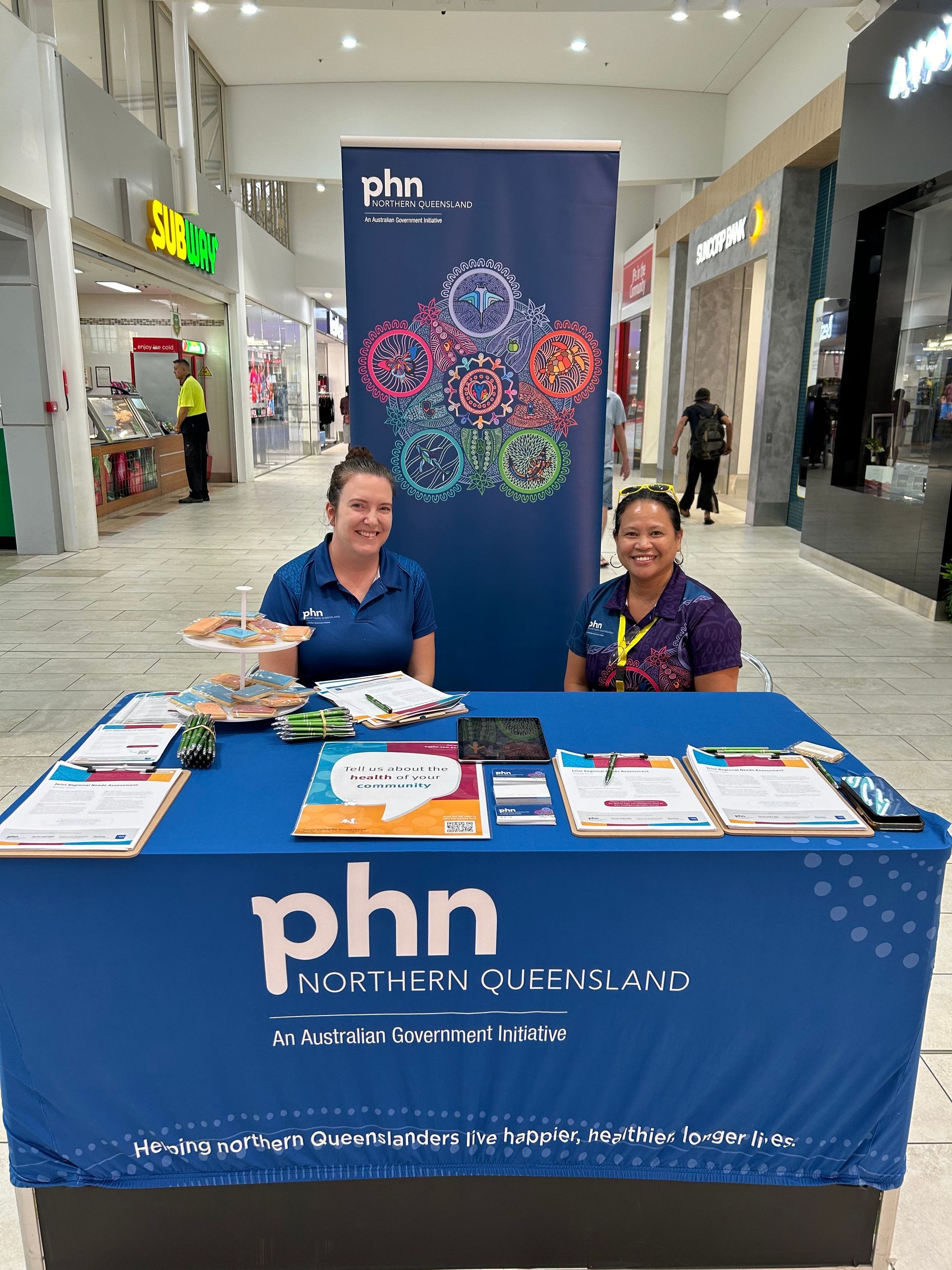
Joint Regional Needs Assessment
During the 2023-24 financial year, NQPHN worked closely with Hospital and Health Service partners in our region to progress work on the Joint Regional Needs Assessment.
The JRNA is a key deliverable required by the Commonwealth and State governments. For Primary Health Networks (PHNs), the JRNA plays a foundational role in shaping our future commissioning strategy. For Hospital and Health Services (HHSs), the JRNA supports identifying gaps in services and supports service planning.
For the first time in 2024, NQPHN and our four HHSs worked together under a new framework to start work on the JRNA. The framework and implementation toolkit were collaboratively developed in partnership with Queensland Aboriginal and Islander Health Council (QAIHC), Health Consumers Queensland, Queensland PHNs, Queensland Government, and Department of Health and Aged Care (DoHAC).
The JRNA will help us collaboratively identify the health and service needs in our region and identify our health and service priorities. These priorities will then be used to inform planning and commissioning activities to improve health outcomes and access to services for northern Queenslanders.
A comprehensive stakeholder engagement phase is nearing completion and will inform the validation and triangulation of data phase in the first quarter of the 2024-25 financial year. The final phase of the project is the prioritisation of needs by a joint Prioritisation Committee, using an established methodology.
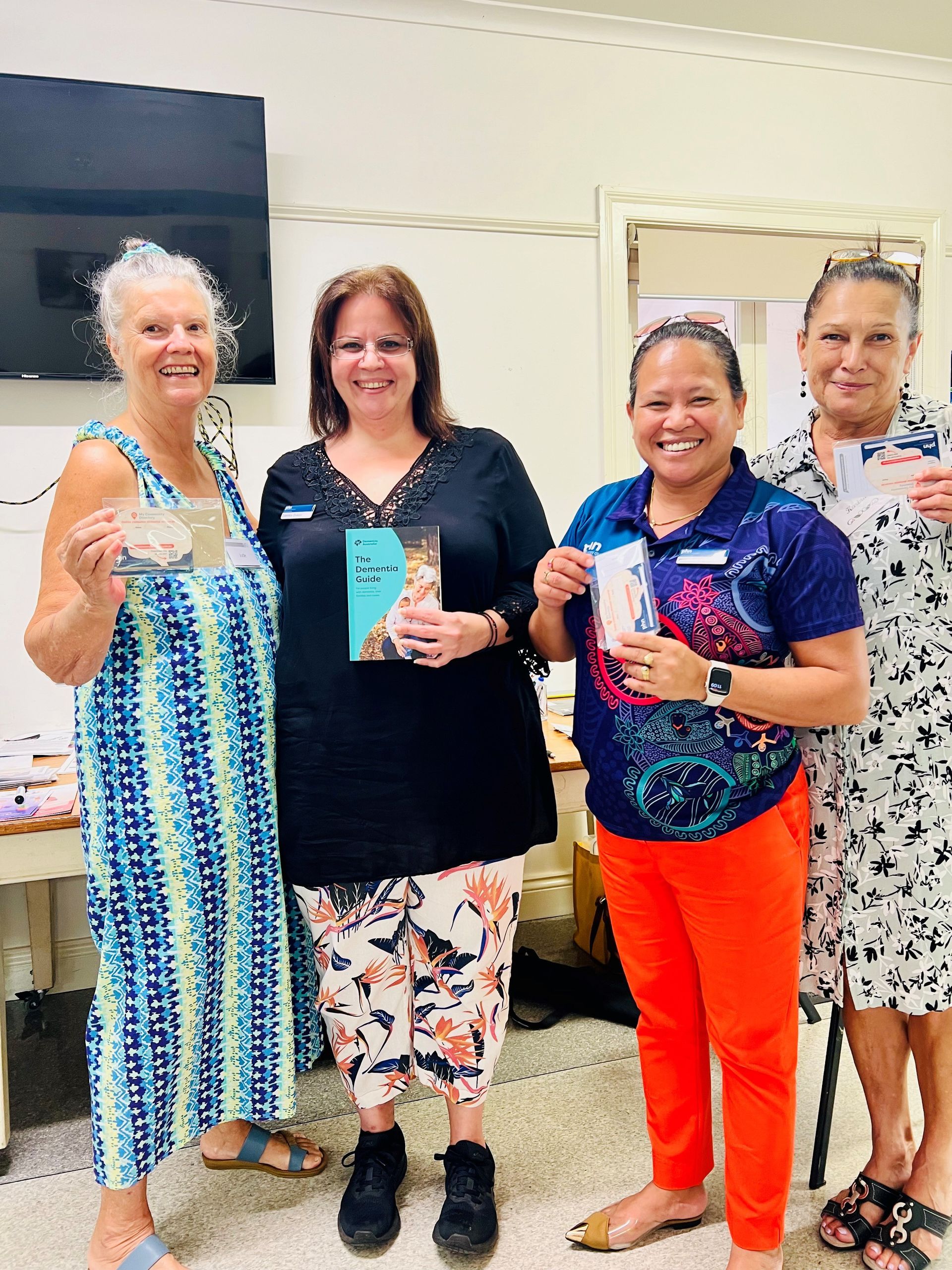
Consumer Dementia Pathways
Dementia is one of the major health challenges that Australia is facing and its impacts on families, the community, and the health system are far-reaching. To assist people with dementia to have the best quality of life, NQPHN developed the Consumer Dementia Pathways resources on My Community Directory, where community members can find services in their local area. The model is based off a similar resource developed by Western Australia Primary Health Alliance (WAPHA).
NQPHN engaged people living with dementia, their carers, and families, as well as health professionals and other service providers to understand the challenges in navigating dementia care to then codesign the Consumer Dementia Pathways resources. NQPHN also mapped dementia services across the NQPHN region by community to identify and validate relevant community information and health promotion resources, including in the Consumer Dementia Pathways resources. NQPHN will continue to engage with local services to ensure information is accurate and maintained using our data quality systems and process, and encourage organisations to add their services to the directory.
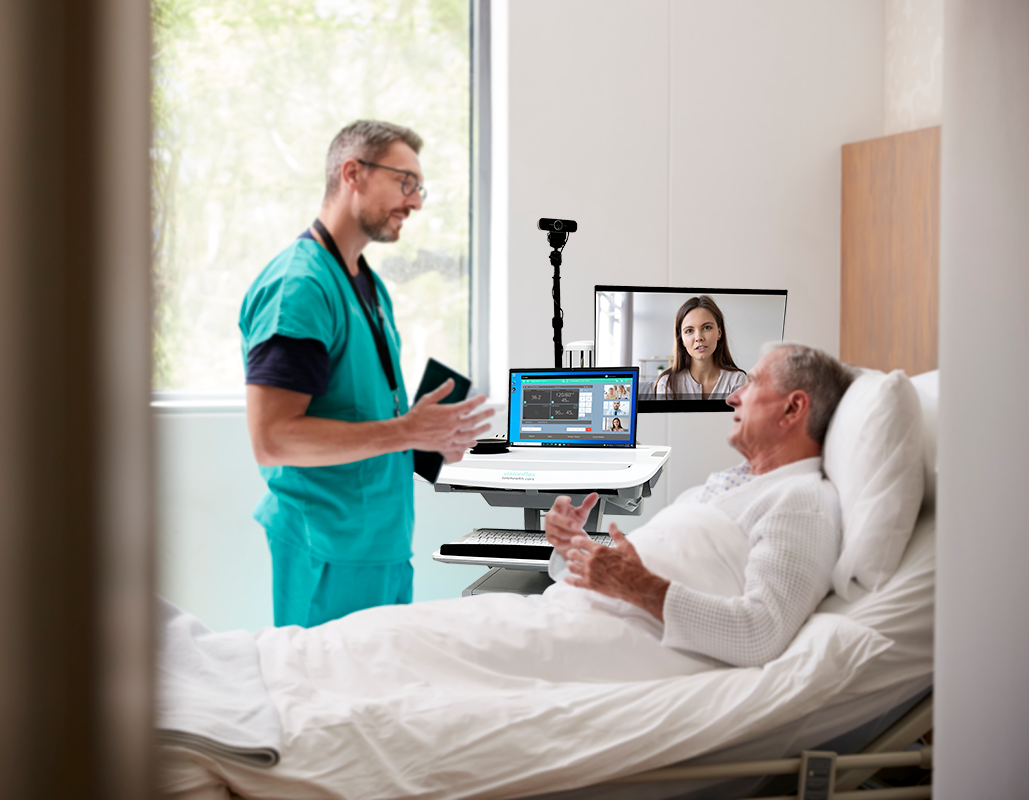
Telehealth carts
During 2023-24, telehealth carts were deployed throughout North Queensland. This initiative allows residents of residential aged care homes (RACHs) to have virtual consultations with medical specialists, GPs, and other clinicians. Training for RACH staff on how to use these telehealth facilities and assisting residents in accessing virtual consultation services begun as the carts were installed and became fully operational.
This activity is part of the Digital Health Capability and Capacity Building for RACH project. In 2023, NQPHN and Enkindle Consulting worked with participating RACHs to consult, assess, and map existing digital maturity and infrastructure. NQPHN then invited RACHs to submit an expression of interest and indicate their preferred grant option - digital tools, workforce support, and capability building (with the telehealth carts a key element of this option). 36 of 54 participating RACHs have opted for a telehealth cart. RACH Managers Networks have been established to ensure proactive cooperation by RACHs in program implementation.
Our sixth priority area relates to our commitment to improve the way we work. Our Foundational goal, underpinned by NQPHN's values, is for our people to work collaboratively and are enabled to achieve NQPHN's strategic objectives with the right systems, processes, and access to data.
During the 2023-24 financial year, NQPHN worked to streamline systems and processes, develop capability and leadership, and support collaboration and integration across the organisation.
